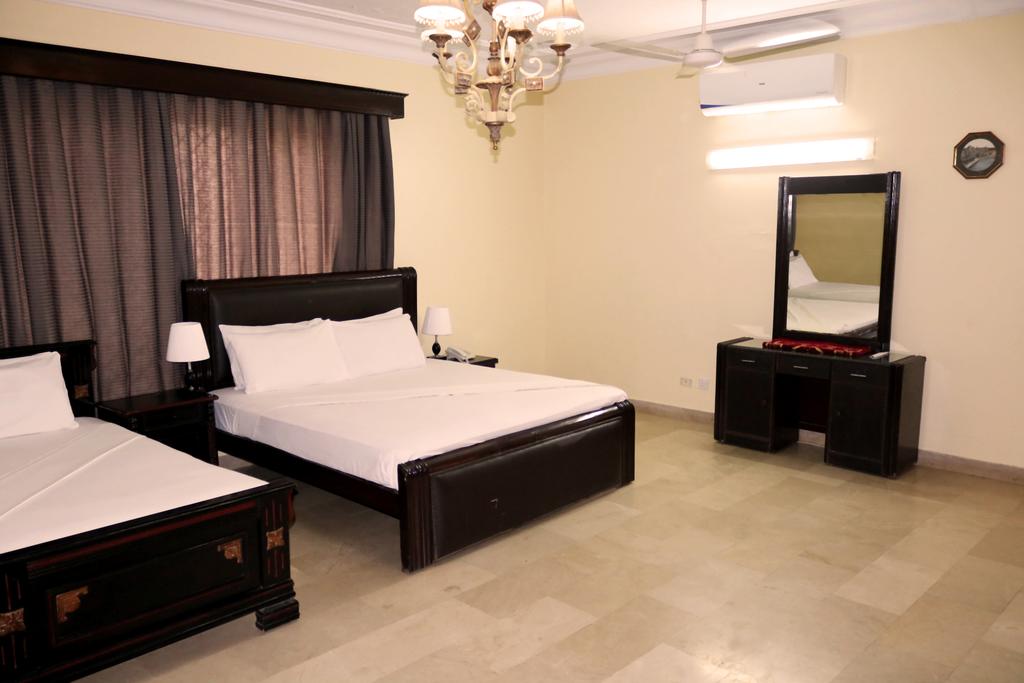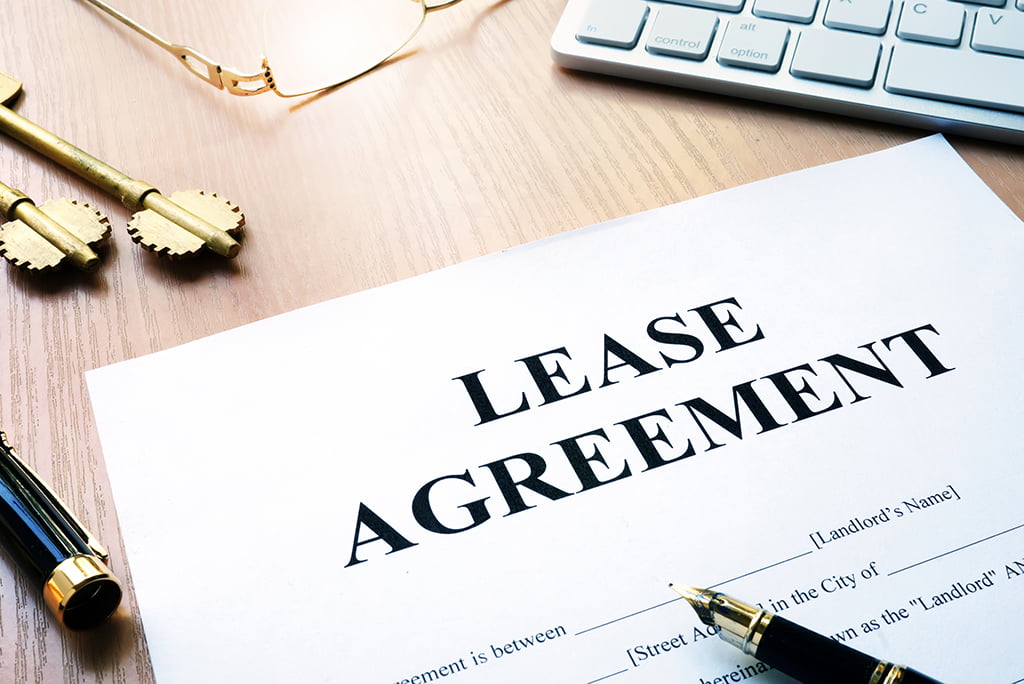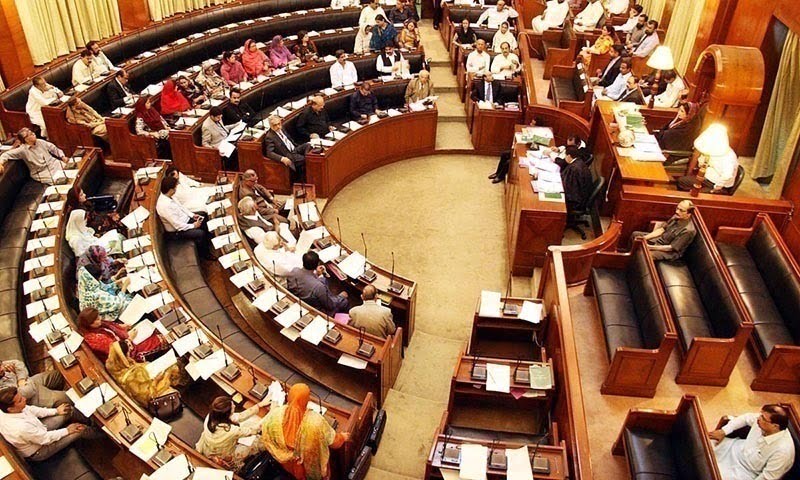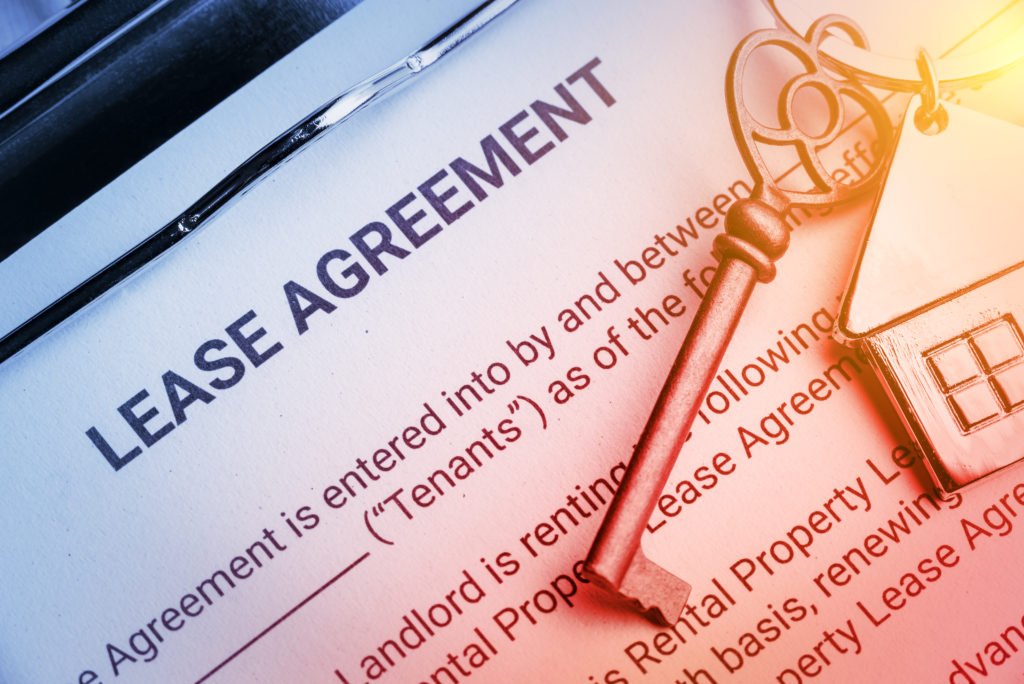So, if you are renting or planning to rent your property sign a rental agreement in Karachi, Hyderabad or any other part of Sindh, today we will discuss everything you need to know about the rights and duties of both. parties in accordance with provincial laws.
Rentals in Sindh

In Sindh, tenancy laws are under the umbrella of Sindh Leased Places Ordinance 1979. This ordinance defined the regulations on rental agreements to protect both the interests of tenants and landlords in almost all situations to avoid disputes and conflicts.
So let’s find out what our law covers about the official documentation and issues related to rental contracts in Sindh.
Rental agreement between country and tenant

Rental lease agreement form on an office desk.
The rental agreement between landlord and tenant must be made in writing. The agreement must be signed by both parties and it must be attested by an official seal of the relevant authority associated with the jurisdiction where the property is located. You can also get this document certified by a First Class Judge or by any Civil Judge. These are the necessary conditions for the validity of a lease.
By law, the lease agreement must be renewed annually, otherwise, it would be considered invalid in court. The landlord is entitled to review the terms of the lease (within legal limits) and monthly rent after the renewal of the contract.
About the conditions related to Rent

The landlord must charge the rental amount, which has been mutually decided by both parties and clearly mentioned in the agreement. Although there is no specific date as the deadline for rental fees, however, according to general practice, tenants must be paid no later than the 10th of each month in Sindh.
The rental laws in Sindh ensure that the rental prices would be fair for tenants as well as for landlords. The laws protect the rights of both parties. According to the laws in Sindh, the rent of real estate cannot be increased by more than 10% annually. In addition, if the fair rent has been determined, it cannot be increased for a period of three years.
Here are some of the main points on the basis of which a fair lease of any particular property is determined.
- The rough analysis of the monthly rents for similar real estate located in the same or adjacent neighborhood.
- The increase in construction costs, repairs and maintenance costs.
- If there is any new tax after the start of the lease.
- An increase in the value of the leased property on the basis of the government-imposed property taxes.
The owner cannot interrupt amenities and services

The law does not allow the landlord to discontinue any of the services and amenities including but not limited to service connections such as electricity, gas, or water unless this is announced in advance and decided with the tenant. However, the interim service providers may terminate such facilities on the basis of their organizational policy. Other relevant authorities may also terminate these amenities and facilities under any specific circumstance.
Maintenance is important

Repair and maintenance of the leased property is the responsibility of the landlord. However, if the owner is unable to do so for any reason, the tenant is entitled to perform the required maintenance.
In such a case, the landlord must pay the maintenance costs. The tenant may deduct it from rental costs if mutually agreed. However, the tenant pays documented proof of expenses incurred for the repayment.
Expulsion Laws in Sindh

Upon successful completion of the lease agreement, the landlord has the right to evict the tenant on the basis of legal eviction conditions. Eviction terms are almost identical across Pakistan. However, Sindh Rented Locises Ordinance 1979 has a number of additional clauses and requirements that must be met to avoid legal complications. The central idea of the additional clauses is listed below:
- The ownership of the leased property was transferred or sold to another person.
- If the tenant causes significant damage to the property, that could impact its property.
- If a major renovation became necessary for the area or reconstruction was forced by the modifications in the building regulations. However, once the reconstruction is complete, the tenant can re-apply for the assets.
- If the owner and their legal heirs want to use the site for their personal use, they are free to vacate the property after consulting the legal authorities.
- If the owner of the rented premises is a widow or orphaned minor or elderly person who is over 60 years of age. And this fact was evident when the property was rented, and the said clause for eviction became invalid.
- Always remember that whatever the cause of eviction, whenever a landlord wants to evict tenants, they must write a request to the relevant authorities in accordance with the law.



